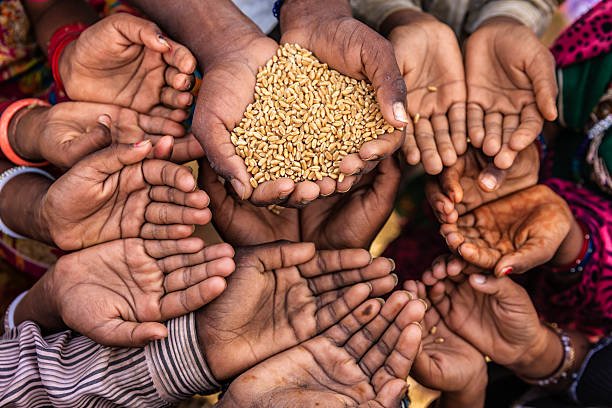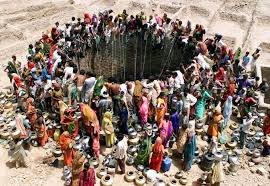According to the 2024 Global MPI report, 1.1 billion people—18.3% of the population in the countries surveyed—live in acute multidimensional poverty.
Poverty is one of humanity’s most enduring challenges, and while its definition may appear straightforward, its reality is far more complex. The 2024 Global Multidimensional Poverty Index (MPI) offers a comprehensive perspective on poverty that goes beyond mere income, examining the multidimensional aspects of deprivation that hinder billions from leading dignified lives. This article explores the nature of poverty, its widespread presence, and how conflicts and fragile situations exacerbate these conditions.
Multidimensional Poverty: Beyond Monetary Definitions
Poverty has traditionally been defined in monetary terms, typically measuring individuals who live below a specific income threshold, such as $2.15 per day. However, monetary poverty alone does not capture the full extent of human deprivation. The Global MPI, developed by the United Nations Development Programme (UNDP) and the Oxford Poverty and Human Development Initiative (OPHI), takes a broader view. It measures acute poverty across health, education, and standard of living indicators, creating a holistic assessment of well-being.
The MPI considers ten indicators, including nutrition, child mortality, years of schooling, school attendance, sanitation, access to drinking water, and availability of electricity. By evaluating these indicators, the MPI reveals how people experience multiple, overlapping forms of deprivation simultaneously. For instance, a family without access to clean water is likely also to struggle with health issues and educational setbacks, highlighting the interconnected nature of these dimensions.
Scope and Impact of Poverty in 2024
According to the 2024 Global MPI report, 1.1 billion people—18.3% of the population in the countries surveyed—live in acute multidimensional poverty. Over half of these individuals are children, which underscores the vulnerability of the youngest members of society. In addition, 83.7% of those living in poverty reside in rural areas, which often lack basic infrastructure and opportunities for advancement. This rural-urban divide is a striking reminder of the geographical disparities that drive poverty.
The majority of the world’s poor are concentrated in Sub-Saharan Africa and South Asia, with 553 million and 402 million people living in poverty, respectively. While many might assume that poverty is primarily an issue in low-income countries, nearly two-thirds of the global poor live in middle-income nations. This points to significant inequality within these countries, where economic growth has not translated into improved living conditions for all citizens.
The Deprivations Faced by the Poor
Poverty is not merely a lack of money—it is a lack of opportunities, resources, and services essential for human dignity. The 2024 MPI data highlight several critical deprivations:
- Inadequate Housing, Sanitation, and Energy: Of the 1.1 billion people in poverty, 886 million live in inadequate housing, 828 million lack proper sanitation, and 998 million lack clean cooking fuel. These deprivations directly impact health and safety, making daily survival a challenge.
- Lack of Education: Education is a crucial pathway out of poverty, but 590 million poor people live in households where no one has completed six years of schooling. Moreover, 482 million live in homes where children are not attending school. This deprivation limits opportunities for future generations, perpetuating the cycle of poverty.
- Health and Nutrition: A significant proportion of the poor also suffer from malnutrition, with 637 million people living in households where at least one member is undernourished. The lack of adequate nutrition weakens resilience, makes people more susceptible to illness, and limits cognitive development in children.
- Limited Access to Clean Water and Electricity: Nearly half of those in poverty lack access to an improved drinking water source, and 579 million are deprived of electricity, which restricts their ability to engage in productive activities, learn, and stay informed.
The Relationship Between Conflict and Poverty
Conflict is a significant driver of poverty, and the relationship between the two is cyclical. The MPI report indicates that 218 million of the world’s poor live in countries affected by war, while 455 million reside in nations experiencing conflict, fragility, or low levels of peacefulness. Countries experiencing conflict have a poverty incidence of 34.8%, which is more than three times higher than that of countries not affected by conflict (10.9%).
Conflicts destroy infrastructure, disrupt access to basic services, displace populations, and create an environment where progress toward poverty reduction is nearly impossible. For instance, Afghanistan saw its poverty rate rise by over 5 percentage points between 2015 and 2023, with nearly two-thirds of the population now living in poverty. The report also highlights how poverty reduction tends to be slowest in conflict-affected areas, leaving millions without hope for a better future.
Children and Poverty
Children are disproportionately affected by poverty. Over half of the 1.1 billion people living in multidimensional poverty are children under 18, and in some regions, such as Sub-Saharan Africa, more than 70% of the poor are children. The impact of poverty on children is particularly devastating—undernourished children are at risk of stunted growth, and those without access to education face limited opportunities throughout their lives. In Afghanistan, for example, 70% of children are living in poverty, which is higher than the rate for adults, illustrating how deeply entrenched and systemic poverty is among the youngest members of society.
The Path Forward: Addressing Multidimensional Poverty
Addressing multidimensional poverty requires a coordinated global effort focused on tackling the root causes of deprivation. This involves investing in healthcare, education, and basic infrastructure, particularly in rural and conflict-affected areas. It also means prioritizing policies that provide vulnerable populations with opportunities for sustainable livelihoods and access to essential services.
Conflict prevention and resolution are critical components of this effort. As long as conflicts persist, progress toward poverty eradication will remain slow or even reverse. Global and local initiatives aimed at building peace, fostering stability, and ensuring access to essential services in conflict zones are necessary steps toward reducing the burden of poverty.
The 2024 MPI report also calls for increased data collection efforts, particularly in conflict zones, to better understand the extent of poverty and tailor interventions accordingly. Reliable data are crucial for identifying those most in need and ensuring that no one is left behind.
Key Facts About Poverty
| Fact | Details |
|---|---|
| Total Population in Poverty | 1.1 billion people (18.3% of the population in surveyed countries) live in acute multidimensional poverty. |
| Children in Poverty | Over half of the 1.1 billion people living in poverty are children, with 27.9% of children globally living in poverty compared to 13.5% of adults. |
| Rural vs. Urban Poverty | 83.7% of people in poverty live in rural areas, with 28.0% of the global rural population being poor compared to 6.6% in urban areas. |
| Regional Concentration | 83.2% of the poor live in Sub-Saharan Africa and South Asia, with 553 million in Sub-Saharan Africa and 402 million in South Asia. |
| Middle-Income Countries | Nearly two-thirds of the world’s poor (65.2%) live in middle-income countries. |
| Inadequate Living Conditions | 886 million lack adequate housing, 828 million lack proper sanitation, and 998 million lack clean cooking fuel. |
| Education Deficit | 590 million people live in households where no one has completed six years of schooling, and 482 million live in homes where children are not attending school. |
| Health and Nutrition | 637 million poor people live in households where at least one person is undernourished. |
| Access to Water and Electricity | 579 million lack electricity, and 513 million lack access to an improved drinking water source. |
| Conflict and Poverty | 218 million people in poverty live in countries affected by war, while 455 million reside in nations experiencing conflict, fragility, or low levels of peacefulness. |
You Learn
Poverty is not just an economic issue; it is a complex, multidimensional challenge that requires a holistic approach. The 2024 Global Multidimensional Poverty Index reveals that over a billion people are deprived across multiple dimensions of well-being—health, education, and living standards. Conflict and fragility exacerbate these conditions, creating environments where basic human needs cannot be met, let alone aspirations for a better life.
To eradicate poverty, we must address not only the lack of income but also the many other facets of deprivation that keep people from living fulfilling lives. By focusing on peace, stability, education, and equitable access to services, we can make meaningful strides toward ending poverty and ensuring that every individual has the opportunity to thrive.
Also Read
What is the Global Multidimensional Poverty Index? I India CSR
Poverty amid Conflict I India CSR






















